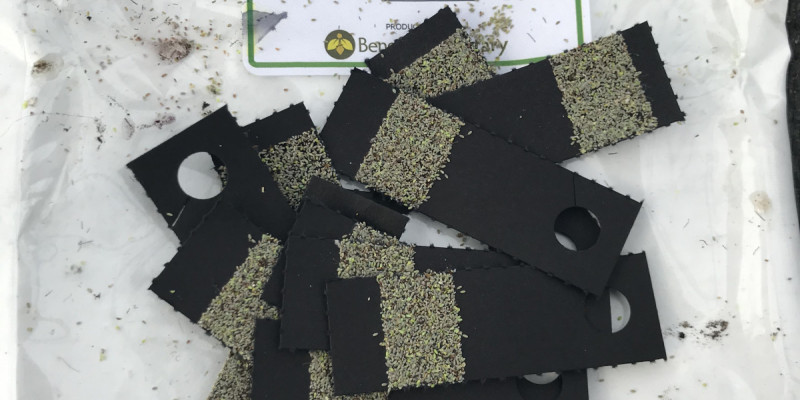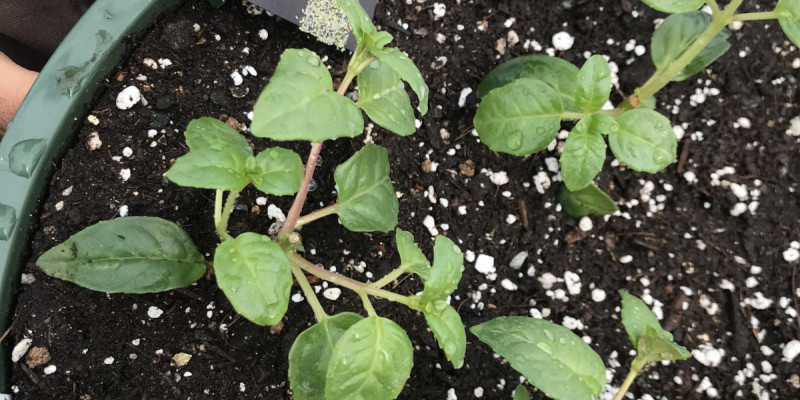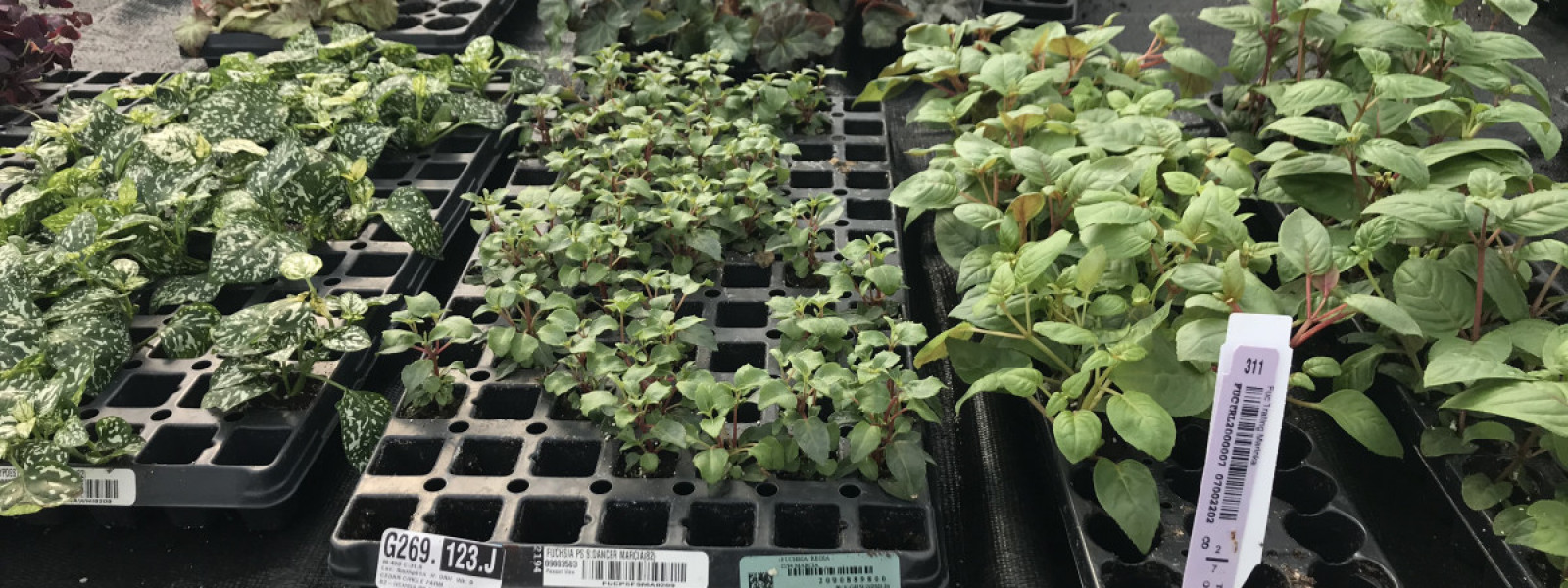Partnering with Predatory Insects
From now until April we will be receiving weekly deliveries of plants. Since we can’t possibly start all our annuals and perennials from seed, we purchase baby plants from nurseries using organic growing practices. When they arrive we transplant them into our 4 inch pots and hanging baskets.
Since these plants are coming from different growers, they can bring aphids and other harmful bugs here to our greenhouses. To prevent pest infestations we use Integrated Pest Management or IPM for short.
“Integrated Pest Management, or IPM, is an approach to solving pest problems by applying our knowledge about pests to prevent them from damaging crops, harming animals, infesting buildings or otherwise interfering with our livelihood or enjoyment of life. IPM means responding to pest problems with the most effective, least-risk option.” -IPM Institute of North America
IPM prioritizes low-risk practices and pesticides are always a last resort. Examples of IPM include rotating your crops, pest traps, the use of predator bugs, and sanitizing greenhouse tools.
In our greenhouses we bring in lacewing eggs every other week to preemptively discourage aphid infestations.


We also use predator mites to control spider mites and parasitic wasps to help with aphids as well. All this helps us to grow plants that are pesticide free and beautiful, just for you!







